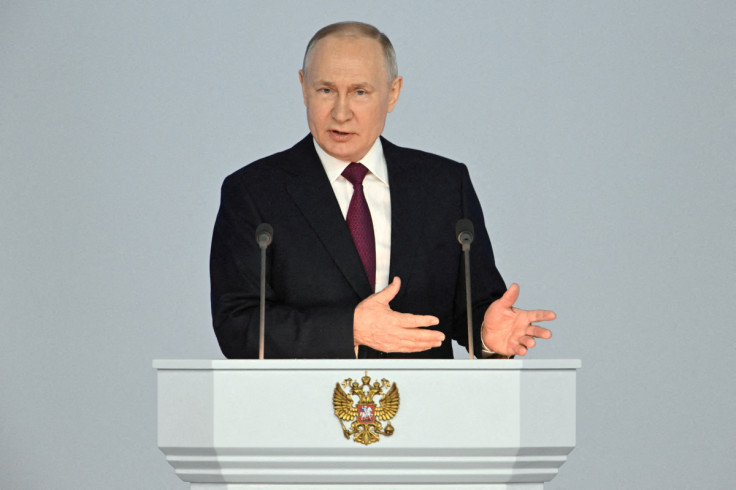Putin Tells FSB Security Service To Raise Its Game Against Western Spy Agencies

Russian President Vladimir Putin told the FSB domestic security service on Tuesday to step up its activity to counter what he said was increasing espionage and sabotage against Russia by Ukraine and the West.
In a speech to officials, Putin said the FSB had to stop "sabotage groups" entering Russia from Ukraine, step up protection of infrastructure, and prevent Western security services reviving what he called terrorist or extremist cells inside Russia.
"Western intelligence services have traditionally always been active in Russia, and now they have thrown additional personnel, technical and other resources at us. We need to respond accordingly," Putin said.
He instructed the FSB to prevent illegal weapons flows into Russia, and to strengthen security in four regions of Ukraine that Moscow has partially seized and claimed as its own - a move most countries at the United Nations have condemned as illegal.
The FSB needs to strengthen all its counter-intelligence activity, Putin told the agency that he once headed.
"Significant information about the control systems of our military and law enforcement structures, defence industry enterprises, critical technologies and personal data must be reliably protected," he said, stressing the importance of secrecy around the latest Russian weapons and equipment.
The president did not mention any specific intelligence failures, but his comments implied concern about potential vulnerabilities.
In the year since he launched his invasion of Ukraine, Russia has seen drone strikes on its own territory, hacking of pro-government media and the assassination last August of the daughter of a prominent nationalist who endorsed the war.
Activists claim to have carried out dozens of attacks on railway infrastructure aimed at disrupting military traffic.
Details are hard to verify, but the FSB said this month it had detained three Russians involved in "terrorist acts" on railway infrastructure in the Urals region.
In the latest example of cyber disruption, the emergencies ministry said hackers had on Tuesday caused regional broadcasters to issue false alerts telling people to take cover in bomb shelters.
Putin has repeatedly urged Russians to guard against traitors in their midst, a theme he returned to on Tuesday:
"It's necessary to identify and stop the illegal activities of those who are trying to divide and weaken our society; to use separatism, nationalism, neo-Nazism and xenophobia as weapons."
He said Russia had always experienced such activity. "And now the attempts, of course, are at their most active. Attempts to activate all this scum on our land."
© Copyright Thomson Reuters {{Year}}. All rights reserved.





















